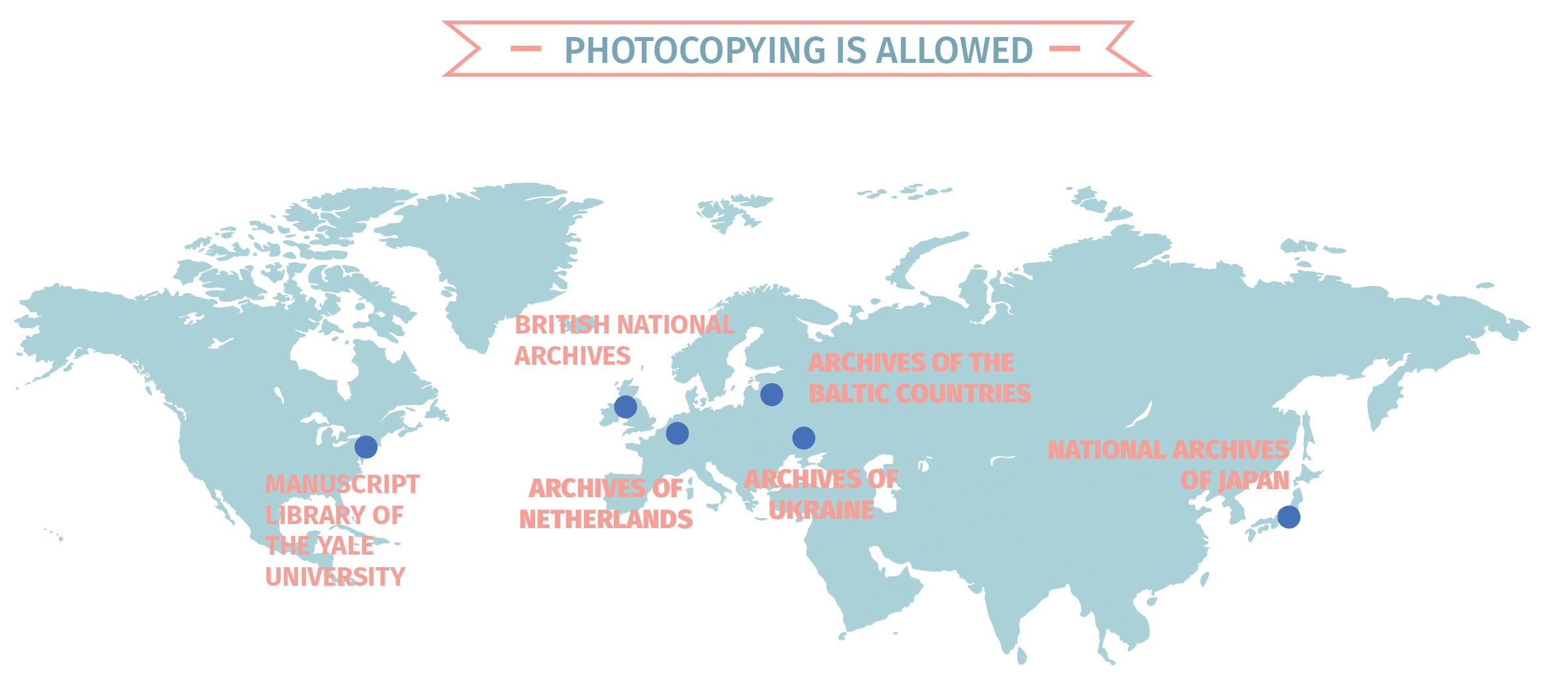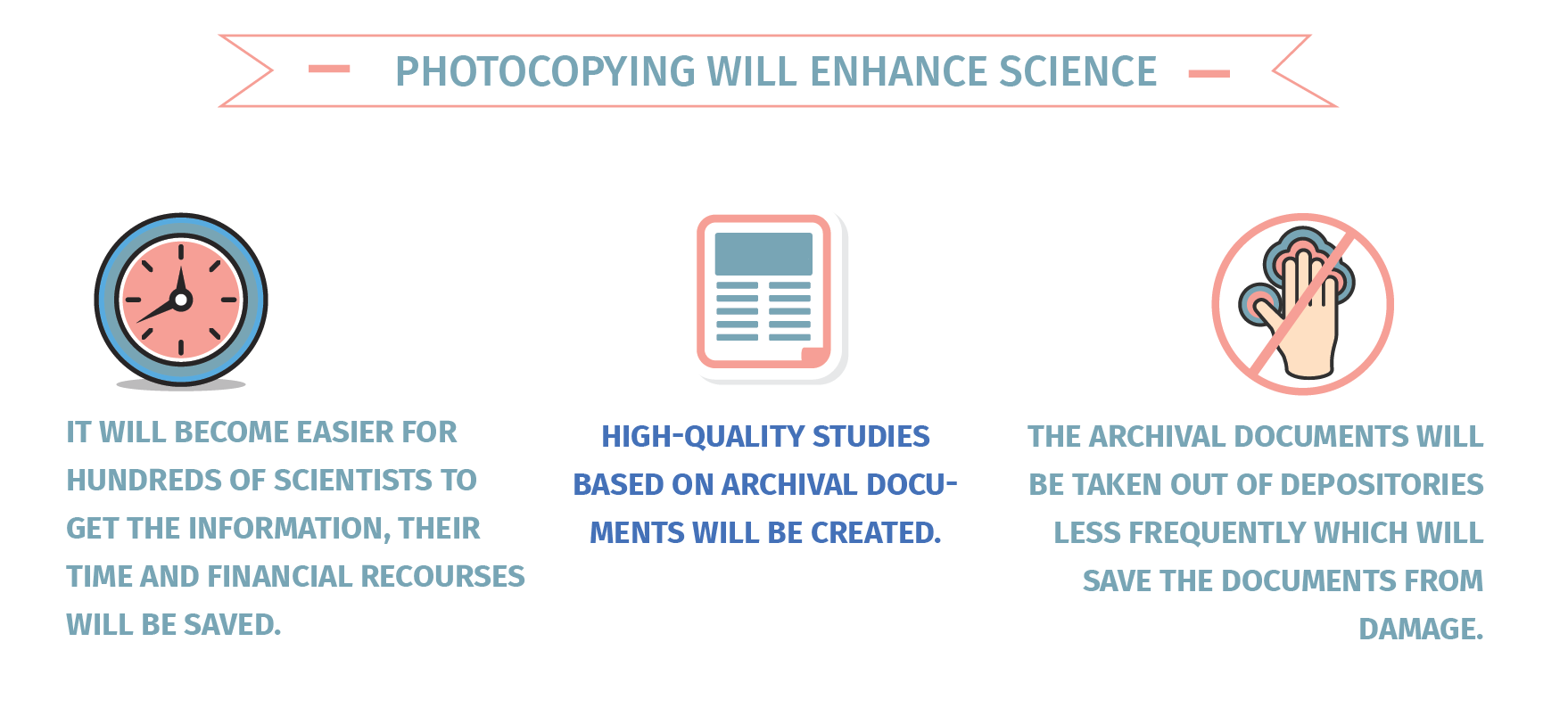


Openness and accountability are democratic principles without which the development of free society is impossible. Access to information, openness of archives and publicity of archival documents are among the achievements of various countries after the collapse of the Soviet Union, which enable them to get known to and rethink their history and totalitarian past.
This issue is especially urgent in the countries where the identification of the victims of the Soviet regime and their legal rehabilitation are carried out based on archival documents. In the former Soviet republics and Eastern Bloc countries, that were influenced by the Soviet totalitarian country, state archives, especially the archives that preserve documents about the victims of Soviet repressions, play a crucial role in this direction.
Additionally, scientific research and the rethinking of the history of repressions is of paramount importance for the citizens to allow the resurgence of totalitarian and repressive systems.
For carrying out scientific research in the archives, a researcher needs a lot of time and financial recourses. Preparation of a single article might need working on hundreds of archival documents that are preserved in the archival fond.

Reading halls, for instance the hall of the National Archives, are open from 9:30 to 17:00. Due to the lack of support to scientists, the majority of researchers have to accomplish other well-paid work, which makes it impossible for some of them to be physically present and work for a long time at the archives.
Saving time is possible through the accessibility of electronic copies. However, in the case of the National Archives, a number of documents and fonds uploaded on the website is still insignificant and only has a promotional character while the documents are not uploaded on the website of MIA Archives at all.
The price for a copy of a single page in the two basic archives of Georgia – National Archives of Georgia and MIA Archives of Georgia, is 2.5-3 GEL while photocopying is prohibited.[1]

In 2019-2020, the Institute for Development of Freedom of Information (IDFI), carried out a project aimed at assessing the openness of archives in the former Soviet and Eastern Bloc countries. Based on the methodology, consisting of 86 elements and elaborated by the leading international researchers and practitioners, an international rating of the openness of archives was created through which 35 state archives of 18 countries were evaluated. The results enable an interested person to receive information about the openness of particular archives before arriving there. Besides, the archives have an opportunity to see in which component their work is unsatisfactory.
Based on the assessment, it has been revealed that using personal camera in allowed in six out of the six most open archives – Czech Republic, Poland, Latvia, Lithuania, Ukraine.
Also, it should be noted that not all foreign archival institutions have identical approach to this issue. However, this practice is shared by the more democratic and accountable countries while the majority of the countries with the less developed democracy have banned photocopying in the reading halls.

IDFI has been advocating the openness of state archives for many years. On August 30, 2019, at the session of the Legal Issues Committee, the Parliament of Georgia discussed the legislative proposal on amendments in the Law on National Archival Fund and National Archives and the Law on Personal Data Protection submitted by IDFI (N1-7153/19; 10.04.2019). The legislative proposal envisioned amendments in several directions, including photocopying.
The Parliament rejected the legislative amendments due to several reasons, including the position of the Ministry of Justice regarding photocopying in the reading halls. the Ministry of Justice declared that “photocopying in such a form can bear certain risks in terms of safety of the documents preserved in the National Archives, since they will not have a so-called watermark or stamp; also, they can be damaged”.
IDFI did not agree with the Ministry’s position and mentioned that photocopying is allowed in the world’s leading archives and in none of these archives, it is considered as a risk of damaging the documents.
Damaging documents during photocopying, especially when there is an employee of the archives in the reading hall and controls the process, is impossible. Moreover, besides creating extra comfort for researchers and saving their time, after allowing photocopying in the halls, the archival documents will be taken out of the repositories with less intensity which will save the documents from physical damage. Also, through modern technologies, removing the watermark is a very simple task.[2]
Also, the Ministry of Justice mentioned that in case of allowing photocopying, the National Archives would lose income. In fact, the income of the National Archives from scanning the documents is 25,000 GEL annually on average, approximately 0.6-0.7% of total income.[3]
Allowing photocopying of archival documents would be a huge step forward not only in the direction of enhancing the openness and accessibility of archives but also in the direction of supporting science. In this way, the government would prove that it has acknowledged the importance of the openness of archives and will establish a practice similar to the free, democratic countries in Georgia.

Based on the archival documents, high-quality scientific studies will be created. Moreover, allowing photocopying in reading halls would significantly save different types of recourses used by each of the researchers visiting archives.
The new reality created due to COVID-19 also proved the necessity to allow photocopying in the reading halls: since 5 March 2020, the National Archives of Georgia has suspended its services.MIA Archives has also stopped working. However, it has not published official information on the website. If the photocopying had been allowed, researchers’ work would not have been interrupted, they would have an opportunity to use the period of social distancing effectively and carry out research while working from home.
Considering the above-mentioned, IDFI considers that the researchers should be granted the right to make a photocopy of archival documents they are interested in on legislative basis. For this, it is necessary to make the relevant amendments in the law on National Archival Fund and National Archives.
You can find the visualization here.
_______
[1] On the Approval of Tariffs, Payment Rules and Terms for the services of the LEPL National Archives of Georgia acting under the aegis of the Ministry of Justice of Georgia. Decree of the Government of Georgia №506, 29 December 2011 / http://archive.security.gov.ge/tarifi.html
[2] For checking, you can search on Google: „how to remove watermark“ and the website will provide you with thousands of results and suggest relevant programs.
[3] The National Archives of Georgia is not obliged to publish its income in details in the relevant section of its website (https://archive.gov.ge/ge/sakartvelos-mtavrobis-2013-tslis-26-agvistos-219-dadgenilebis-shesabamisad-sakartvelos-erovnuli-arkivi-akveqnebs-sajaro-informatsias-2019-tseli-1). However, the employees at the reading halls of archives confirm the amount of average income.

Publication of this article was financed by the Open Society Institute Budapest Foundation (OSI) within the frame of the project - Enhancing Openness of State Archives in Former Soviet Republics and Eastern Bloc Countries. The opinions expressed in this document belong to the Institute for Development of Freedom of Information (IDFI) and do not reflect the positions of Open Society Institute Budapest Foundation (OSI). Therefore, OSI is not responsible for the content.